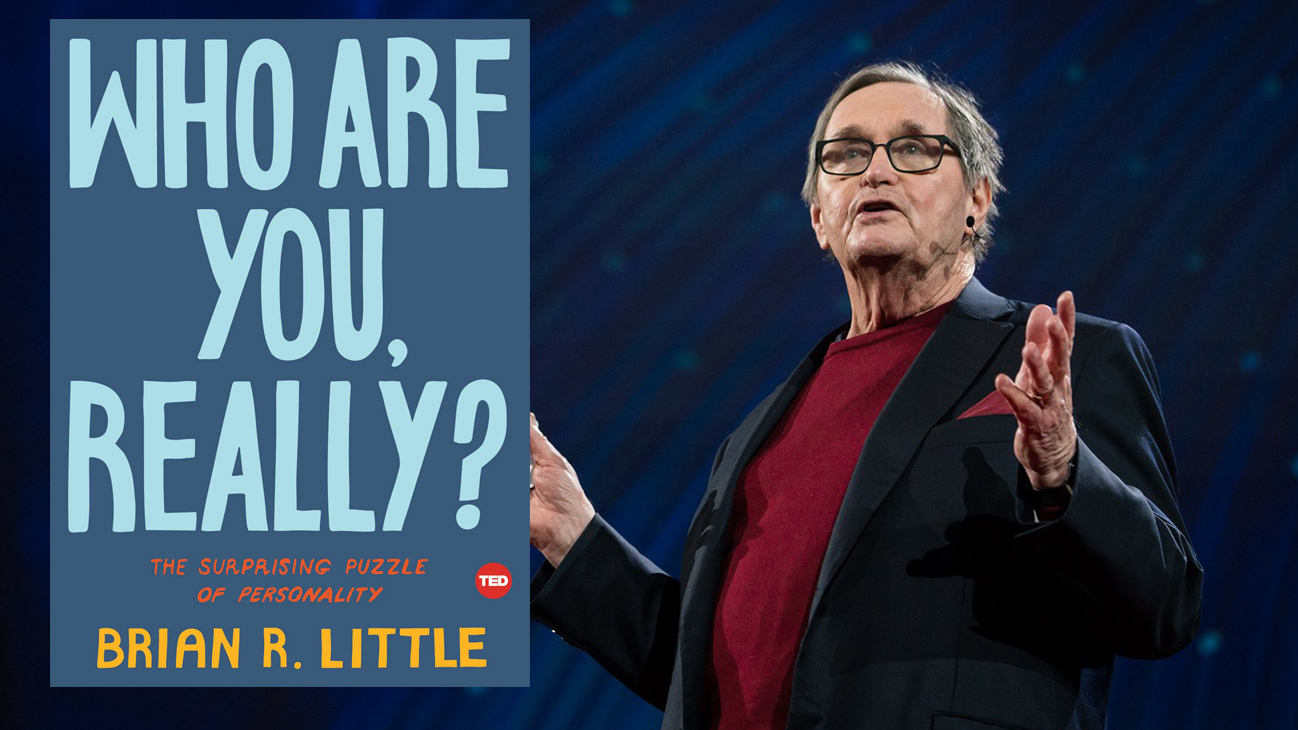Described as “a cross between Robin Williams and Einstein,” Dr. Brian Little employs equal doses of humour and intelligence to explain how our personal communication styles influence our experiences with colleagues and clients. A personality psychologist and an expert in personality differences, group dynamics, and project management, Dr. Little was elected a “Favourite Professor” by the graduating classes of Harvard for three consecutive years. Dr. Little’s new book, Who Are You Really: The Surprising Puzzle of Personality, has just been published, and we’re pleased to share this excerpt:
Scanning Your Personality: The Big Picture
So, how are you doing? Are you happy? Are you accomplishing the things that matter to you? Are you living up to your capabilities? Are you able to love and be loved? Are you physically well? Is there some laughter in your life? If you answer yes to all such questions, we might say that you are flourishing. If you answer with an emphatic “No!” or even an eyeball-rolling “Seriously, get real,” you might be better described as floundering. And in between these extremes, we might find you in the middle, doing reasonably well considering the circumstances.
Biogenic traits deeply influence whether you flourish or flounder. You may be temperamentally predisposed to viewing your life positively and optimistically, even though the objective reality that you confront might be rather bleak. Or despite living in a relatively safe, nurturing, and prosperous environment, you may see your life as half empty, or utterly miserable. The forces of nature and nurture that provide answers to “Who are you?” are also key to answering the question “How are you doing?” The relation between these biogenic and sociogenic influences can be simply graphed as:
Whether you are flourishing or floundering, in other words, is partly determined by the combination of biogenic and sociogenic sources that impinge on you during the course of your life. These aren’t the only influences, but we need to understand how they work before we explore how your personal projects empower you to deliberately design who and how you are. So let us begin with a brief tour through the inner biogenic and the outer sociogenic forces that shape your personality.
Personal Zoom: Scanning the Inner You
Imagine a microscope that dips under your skin and zooms down to reveal your tissues, organelles, cell nuclei, chromosomes, and genes. It darts up to your brain and homes in on a single neuron firing a squirt of neurotransmitters and the explosion of activity in associated cells. It then zooms out to focus on the physical body reading this book wondering about who it is and how it’s doing. This “it” is the biogenic you.
Within personality psychology, those who study the biogenic perspective explore how your relatively stable personality traits influence your quality of life. These stable traits correspond to differences in brain structure and function—those microscopic events we just saw when zooming in on the inner you. These biogenic features can be assessed by measures of electrical activity in various regions of your brain or through analyses of patterns of neurotransmitter activity. They can also be revealed through personal genomic analysis, which can now be done for roughly $200. In My Beautiful Genome, the Danish science writer Lone Frank relates the fascinating account of her quest to examine aspects of her personal genome and its links to her health and personality. She discovered that she had a gene variant that predisposed her to negative emotionality and what she most agreeably describes as her “own miserably low score on agreeableness.”
Some of these biogenic personality traits will incline you toward being happy or healthy or accomplished or, conversely, will explain why you despair over life’s various hiccups. Let’s say your life is flourishing right now—you are happy, healthy, and successful, certainly compared to your mopey best friend, but maybe even in an absolute sense. This may be due to your having biogenic features of temperament and personality that dispose you to adopt a positive outlook. Even when life sucks, your stable dispositions make you resilient and buoyant. You continue to grow and prosper. Indeed, you may have pronoia, the delusional belief that other people are plotting your well-being or saying good things about you behind your back. Your friend’s stable traits, in comparison, may not be conducive to flourishing at all. She is angry and defiant and unsatisfied, and according to her mother, she was like this from birth. She is temperamentally disposed to being ill-disposed. She flounders.
The Big Five: The Original You
Did you know that it is virtually impossible for you to lick the outside of your own elbow? And did you know, strange as it may sound, that how you responded to that piece of information—whether and how you attempted the pursuit—might provide a hint about the stable traits you are born with and that form the bedrock of your personality? Let me explain: While there are thousands of ways we might distinguish people on the basis of their traits, personality psychologists have reached a consensus that people vary from one another along five basic dimensions: the Big Five traits.

